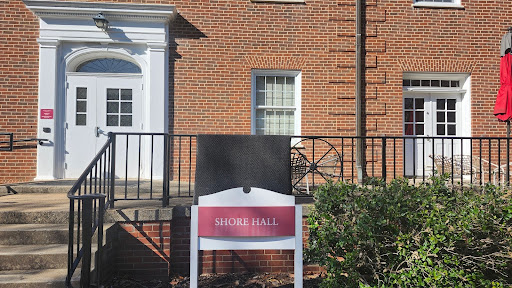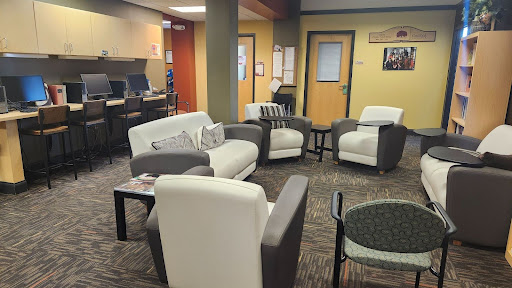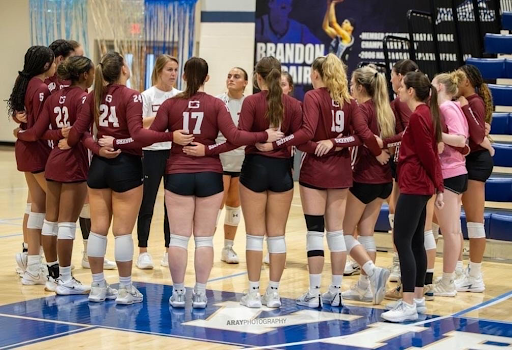On Oct. 24, Guilford held a world premiere, but there was no red carpet or paparazzi.
Instead, author of the “Wildly Good Cook” series, Linda Watson, arrived in front of a crowd of Guilford students in a cherry-printed apron to show her film, “Cook for Good in 20 Minutes a Day”, for the first time.
The premiere was one of two events held by Linda Watson as part of Food Week.
Food Week was sponsored by the Biology Club, the Center for Principled Problem Solving, the Film Society, the Hunger Fellows, the Health Science Club, Community Senate, Slow Food and dining service Meriwether-Godsey.
Food Week is Guilford’s own expansion of National Food Day, and included many other events such as a fermentation workshop, a tour of Frank Massey’s farm and a Meadowfed dinner at the Guilford Farm.
“(Watson) focuses a lot on the education part (of cooking), like on how much money we actually waste when we buy our food
and how much food we actually waste,” said Heather Scott, senior and president of the Slow Food club. “We might as well go out with $10 and buy $10 worth of food instead of $25 because we throw away so much food.”
Watson also held a live cooking class where she demonstrated how to cook noodles in a spicy peanut sauce with seasonal vegetables that cost only $1.11 per serving.
After the demonstration, Watson led a discussion about the social ethics behind shopping locally and eating organically.
The low price of Watson’s dish demonstrates the basic point of her video, Cook for Good in 20 Minutes a Day, and her book “Wildly Affordable Organic,” which is to “eat fabulous food, get healthy, and save the planet all on $5 a day or less.”
Watson got the idea for the cookbook when she and her husband decided to go on the Food Stamp Challenge. They resolved to eat on the budget of $1.53 a day, the budget allowed for North Carolinians on Food Stamps.
She did this to prove that people on a budget could buy fruits and vegetables instead of junk food, contrary to popular belief.
After a month of the Food Stamp Challenge, Watson’s husband stopped her one night after dinner, asking to talk.
“Now, that’s the last thing you want to hear from your spouse,” Watson said. “I was afraid he didn’t like the food we were eating, that he was going to say he was leaving me for someone who would make him cheesecake.”
What he said next surprised her.
“He said that since we started the challenge, he felt better than he has felt for a long time,” Watson said. “He was sleeping better, had more energy and had even lost weight. That was true for me too.”
The book and video demonstrate how to shop locally and eat organically while still saving money and staying healthy at that.
Senior Canna Zheng helped organize the event, fulfilling her role as both the president of the Biology Club and the co-chairwoman of Food Week.
Zheng agrees with Watson’s philosophy on food.
“You can choose to spend $5 on medicine or $5 on vegetables,” said Zheng. “I’d pick the vegetables, as medicine tends to be more expensive than that.”
Senior Grace Chafin, president of the Health Science Club and fellow co-chairwoman of Food Week also agrees with this sentiment.
“It affects all of us, every single day, at least three times a day,” said Chafin. “It affects your health. It affects everything.”
Watson also discussed how the benefits of eating local and organic goods could stretch beyond your own personal health.
“By cooking from scratch, you are shrinking your carbon footprint,” Watson said. “And by buying locally, you are not contributing to the gas that is used to ship all of the food to your grocery store.
“The best way to understand food is to eat it.”
And if you had been at the cooking demonstration and eaten her noodles, you would understand that saving the world can be tasty too.
[photomosaic nggid=67]











